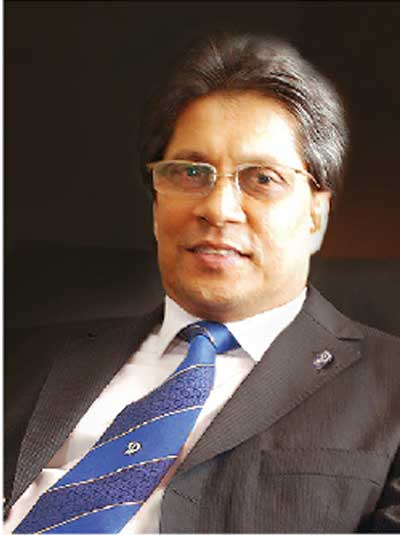Saturday Feb 21, 2026
Saturday Feb 21, 2026
Monday, 10 August 2015 00:00 - - {{hitsCtrl.values.hits}}

Ceylon Chamber of Commerce CEO Mangala P.B. Yapa
(Xinhua) Colombo: Under its new Government, Sri Lanka is looking at China as a major source of Foreign Direct Investment (FDI) to further expand its growing economy, a top business executive said.
In an interview with Xinhua, Mangala P.B. Yapa, CEO of Sri Lanka’s biggest business group, the Ceylon Chamber of Commerce, said China and Sri Lanka had been trading partners for years and due to Sri Lanka’s strategic importance, China can pour investment into the country to benefit not only both nations but other South Asian countries as well.
“China is a fast growing market. China’s expanding middle class and upper class will require a lot of goods and services that Sri Lanka can provide. On the other hand, China is also looking at investment globally with Sri Lanka as an ideal destination,” Yapa said.
So far, bilateral trade between Sri Lanka and China was valued at more than three billion U.S dollars. But Sri Lanka is looking forward to increasing its exports to the world’s second largest economy.
In order to further improve their business relations, Chins and Sri Lanka are working out a free trade agreement.
“China has been and will be a strong partner for Sri Lanka’s economic growth. I see this as a relationship which needs to be further strengthened,” Yapa said.
In January, Sri Lanka elected its new president, Maithripala Sirisena, whose campaign pledge was to reduce corruption and promote good governance. In line with this promise, all major infrastructure projects have been submitted for review by a government body whose function is to ensure that all government projects have complied with all legal requirements of Sri Lanka.
Relations between the two countries had encountered a slight bump after the 1.5-billion-US dollar expansion of the Colombo port project was suspended for a review process when the new president took over. Nonetheless, officials of the Sri Lankan government have assured that relations with China are important to them and will continue to prosper.
“I think the suspension is a temporary setback and has no long- term effect. It is just a question of addressing some of the concerns that were there and making them more transparent and I really do not see a major problem in moving forward in this regard,” Yapa said.
According to Yapa, Sirisena’s recent visit to China was a clear indication of Sri Lanka’s commitment to strengthen its relations with China. “Because of this, I really do not see any major problem in attracting Chinese FDI to Sri Lanka and for Sri Lanka to increase its exports to China,” he said.
China became Sri Lanka’s largest loan provider after the end of three decades of civil war in 2009. Beijing has provided Colombo with over 5 billion U.S. dollars in loans, mostly for massive infrastructure projects, including highways, railways and ports, and another 1.2 billion US dollars for a coal-power plant.
In March, the new president paid his first visit to China with both sides pledging to further strengthen bilateral relations. During the tour, Sri Lanka’s new government received significant grants, mostly for construction of hospitals to upgrade the country’s public health sector.
Sri Lanka also sees great opportunities of growth as the economy expands after the end of the civil war. Sri Lanka grew by 7.4 percent in 2014 and although growth is expected to slow marginally to 7% this year, the country remains and exciting investment point in South Asia.
“Sri Lanka has got a very good opening and space for opportunity. There had been a change and this change gave a new backdrop at which business can look at multiple opportunities,” Yapa said, adding that the country is aiming for an inclusive growth that would benefit a large segment of the Sri Lankan population.
He said recent political changes in the country have been viewed positively by the business community, and the new growth opportunities are expected to be outlined by the new government later this year.
“I look at the changes positively and consider them as opportunities for Sri Lanka to integrate with the global economy,” he said.